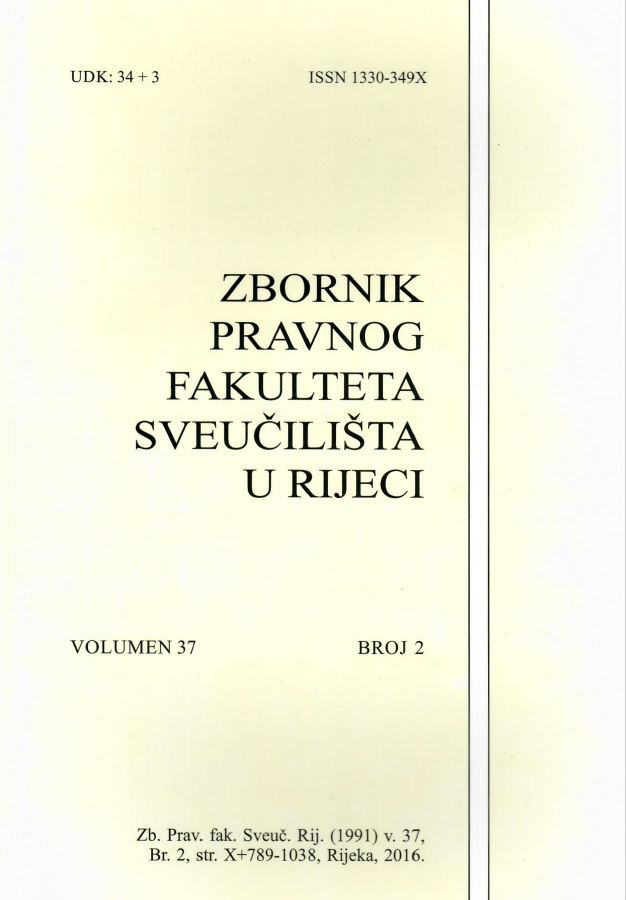ABOUT STAY OF CIVIL PROCEDURE AND (UN)JUSTIFIED REASONS FOR ITS ABOLISHMENT
DOI:
https://doi.org/10.30925/zpfsr.37.2.10Keywords:
stay of proceedings; abolishment of stayAbstract
Stay of procedure, as a method of temporary standstill of civil proceedings, was abolished in the amendments of the Civil Procedure Act of 2013. Legislator was of opinion that the stay contributes to the procedural non-activity and unnecessary delays in the proceedings. It was not alone. A number of professional experts had for the whole decade considered the stay to be a useless institute which was used only as an abuse of process aimed at slowing down the proceedings and which was not in accordance with a new concentrated civil procedure. Those allegations required reassessment. This paper presents relevant statistics and the results of the survey conducted among lawyers of different profiles and backgrounds, in order to show if the reasons for abolishing the stay were justified. The paper demonstrates the results of the reforms, as well as comparative solutions which could represent future developments in the Croatian civil procedure and its temporary standstill methods.
Additional Files
Published
Issue
Section
License
Collected Papers is an open access journal. Journal does not charge article processing charges (APC) to authors. It is licensed under CC BY-NC licence 4.0.
Collected Papers of the Law Faculty of the University of Rijeka" is an Open Access journal. Users are allowed to read, download, copy, redistribute, print, search and link to material, and alter, transform, or build upon the material, or use them for any other lawful purpose as long as they attribute the source in an appropriate manner according to the CC BY licence.
The papers published in "Collected Papers of the Law Faculty of the University of Rijeka" can be deposited and self-archived in the institutional and thematic repositories providing the link to the journal's web pages and HRČAK.
Upon acceptance of the manuscript for publication by this journal, the author can publish same manuscript in other journals only with the permission of the Editorial Board (secondary publication). A repeated publication should contain a notice as to where the manuscript was originally published.



